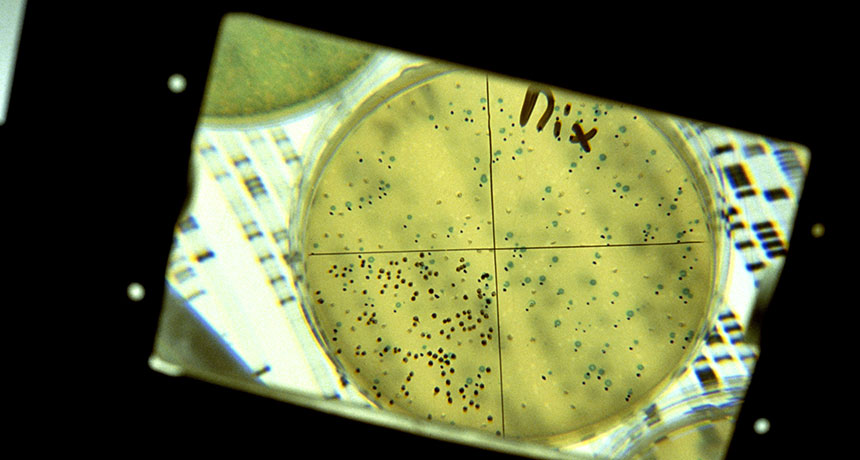50 years ago, scientists were unlocking the secrets of bacteria-infecting viruses

Unusual virus is valuable tool —
Viruses, which cannot reproduce on their own, infect cells and usurp their genetic machinery for use in making new viruses…. But just how viruses use the cell machinery is unknown.… Some answers may come from work with an unusual virus, called M13, that has a particularly compatible relationship with … [E. coli] bacteria. — Science News, April 5, 1969
Update
M13 did help unlock secrets of viral replication. Some bacteria-infecting viruses, called bacteriophages or simply phages, kill the host cell after hijacking the cell’s machinery to make copies of themselves. Other phages, including M13, leave the cell intact. Scientists are using phage replication to develop drugs and technologies, such as virus-powered batteries (SN: 4/25/09, p. 12). Adding genetic instructions to phage DNA for making certain molecules lets some phages produce antibodies against diseases such as lupus and cancer. The technique, called phage display, garnered an American-British duo the 2018 Nobel Prize in chemistry (SN: 10/27/18, p. 16).